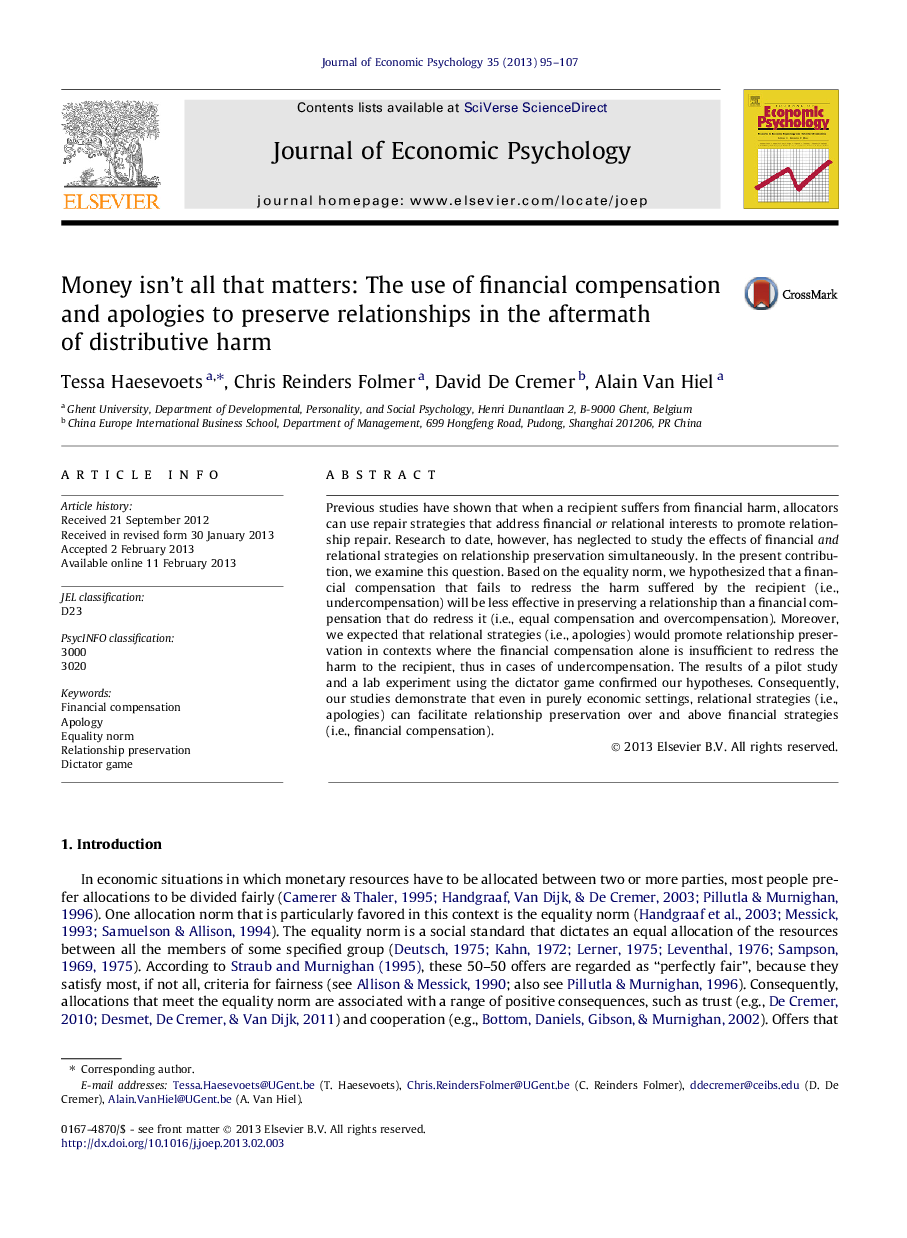| Article ID | Journal | Published Year | Pages | File Type |
|---|---|---|---|---|
| 885007 | Journal of Economic Psychology | 2013 | 13 Pages |
Previous studies have shown that when a recipient suffers from financial harm, allocators can use repair strategies that address financial or relational interests to promote relationship repair. Research to date, however, has neglected to study the effects of financial and relational strategies on relationship preservation simultaneously. In the present contribution, we examine this question. Based on the equality norm, we hypothesized that a financial compensation that fails to redress the harm suffered by the recipient (i.e., undercompensation) will be less effective in preserving a relationship than a financial compensation that do redress it (i.e., equal compensation and overcompensation). Moreover, we expected that relational strategies (i.e., apologies) would promote relationship preservation in contexts where the financial compensation alone is insufficient to redress the harm to the recipient, thus in cases of undercompensation. The results of a pilot study and a lab experiment using the dictator game confirmed our hypotheses. Consequently, our studies demonstrate that even in purely economic settings, relational strategies (i.e., apologies) can facilitate relationship preservation over and above financial strategies (i.e., financial compensation).
► We investigated the effects of compensation and apology on relationship preservation. ► Undercompensation is less effective than equal compensation and overcompensation. ► Overcompensation is not more effective than equal compensation. ► An apology has additional value, but only in cases involving undercompensation. ► Both financial and relational strategies play a role in preserving relationships.
